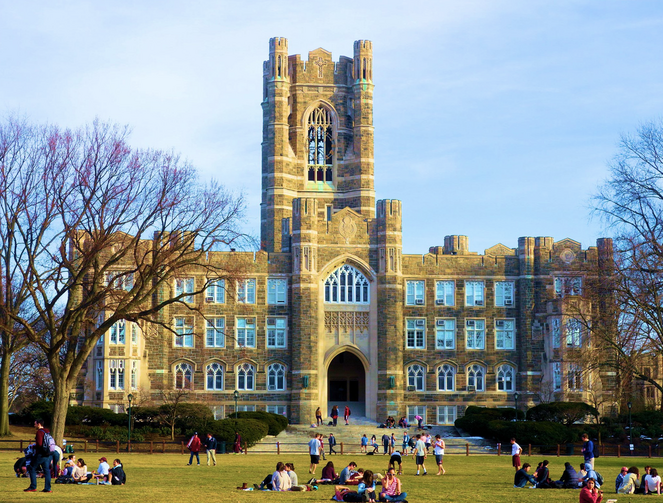As the coronavirus continues to spread across the nation, Jesuit colleges and universities have begun efforts to contain the illness. Fordham University announced on March 9 that, in addition to a prior decision canceling all on-campus activities, the university would only conduct classes online beginning on March 11, adding that public Masses will be suspended until further notice.
With spring break scheduled to begin on March 16, the university also asked students to “return home immediately,” unless it was impossible for them to do so. In-person classes are expected to resume by March 30.
“We realize that these measures are disruptive and possibly alarming,” wrote Fordham’s president, Joseph M. McShane, S.J., in a university-wide email. “Let me assure you that we take them because we believe they are the best way to protect the health and wellbeing of the campus community.” There have been no cases of coronavirus reported at Fordham.
According to the Association of Jesuit Colleges and Universities, numerous other Jesuit schools have taken precautions to protect their students from Covid-19, which, according to tracking by The New York Times, has so far claimed the lives of 22 people in the United States and infected about 600 others. The Centers for Disease Control and Prevention on March 9 reported 423 cases and 19 deaths.
Responding to the rapid spread of the virus in Italy, Fairfield and Gonzaga Universities recalled students from study abroad programs there even as the Italian government established a quarantine of nearly a quarter of the nation’s population. Fordham University had already recalled its students from northern Italy on Feb. 27, and Syracuse and New York Universities have taken similar steps.
The A.C.J.U. is monitoring coronavirus plans and responses among Jesuit institutions, but institutions of Catholic higher education are not alone in adopting strong preventative measures. Jesuit High School in Portland, Ore., closed for one day on March 4 to strategize for its response. Erika Tuenge, the high school’s vice president of communications and public affairs, said that the school community should prepare “even more proactively in the event an extended school closure may be required at some point in the future.”
Loyola Academy, a Jesuit high school outside of Chicago, closed on March 9 for one day, after a student at the school came in contact with an individual who tested positive for coronavirus. “The Loyola student and the student’s family are now under a 14-day quarantine and are not manifesting symptoms of Covid-19,” said school officials in a statement to the press.
Liam Siegal, a junior at Fordham, wonders how effective the school’s approach may be in the long term. “I feel that going to online classes is a smart short-term move, as it does help to limit person-to-person contact,” said Mr. Siegal. “However, it’s hard to say how long you can contain the virus when everyone returns [to Fordham] from different areas that could be impacted.”
Another Bronx-based Fordham student expressed concern regarding online classes. “I'm happy to go home early,” said Jacques Guillot, Jr., “but I'm skeptical of how smoothly online classes are going to go, and how seriously students...will take [those] classes.”
During his Angelus address on March 8, Pope Francis prayed for people experiencing coronavirus, saying that he and his bishops ask “the faithful to live this difficult moment with the strength of the faith, the certainty of hope and the ardour of charity.” Pope Francis tested negative for the coronavirus after a recent cold.
Almost 4,000 people have died out of more than 114,000 cases of Covid-19 reported worldwide. The Centers for Disease Control and Prevention recommends frequent hand washing and avoiding close contact with anyone displaying flu-like symptoms. The severity of the flu-like symptoms of the disease can vary, but the elderly, immune-compromised people and those with underlying health conditions—such as diabetes or lung disease—remain most at risk.










